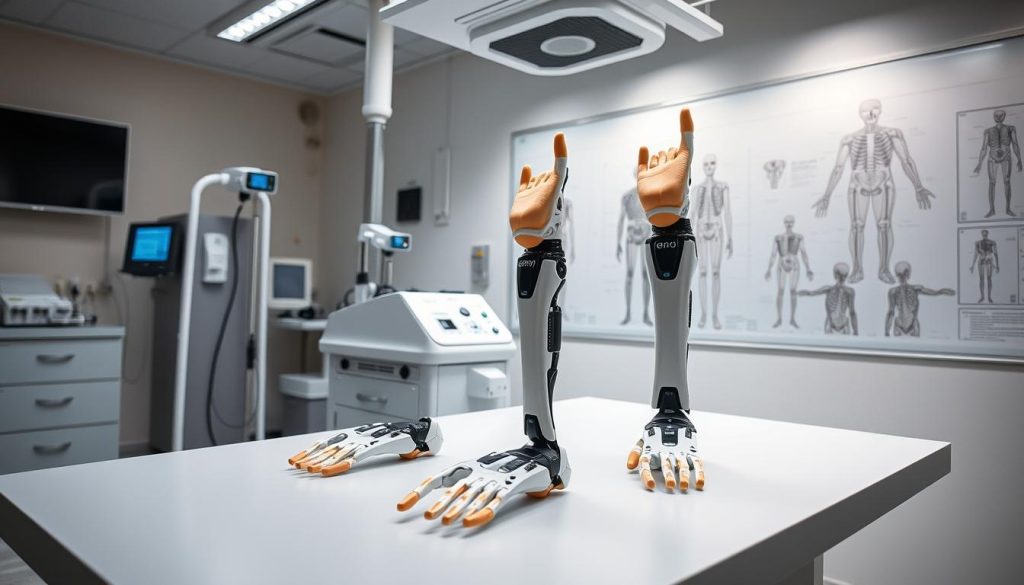CPO Test: Your Path to Prosthetic Certification
Aspiring professionals in prosthetics and orthotics face a big step: the CPO (Certified Prosthetist Orthotist) test. This test is key to getting certified. It lets people show they’re ready to give top-notch care to those needing prosthetics and orthotics.

The CPO test checks if you know your stuff in many areas. This includes biomechanics, how to evaluate patients, making devices, and rehab sciences. Passing it shows you’re a pro in the prosthetics and orthotics field.
Key Takeaways
- The CPO test is the essential examination for individuals seeking certification in the fields of prosthetics and orthotics.
- The test assesses candidates’ expertise across a diverse range of topics, including biomechanics, patient evaluation, and device fabrication.
- Passing the CPO exam demonstrates a candidate’s commitment to providing the highest quality of care for patients in need of prosthetic and orthotic devices.
- Successful completion of the CPO test enables individuals to become certified professionals, recognized for their specialized knowledge and skills.
- The certification process ensures patient safety and optimal outcomes, while also showcasing the practitioner’s dedication to the rehabilitation sciences.
Understanding the Importance of CPO Certification
The Certified Prosthetist Orthotist (CPO) certification is a top honor. It shows a person’s skill in prosthetics and orthotics. It means they know how to use new tech and science to help patients.
Ensuring Patient Safety and Optimal Outcomes
CPOs get special training. They learn how to make and fit devices that fit each patient’s needs. This shows they can pick the right parts and make things that help patients move better and feel more comfortable.
Demonstrating Professional Expertise
Getting the CPO certification shows a person’s hard work and care for patients. It means they know a lot about patient care, biomechanics, material science, and medical technology. This is key for making top-notch prosthetic and orthotic devices for patients.
| Key Benefits of CPO Certification | Description |
|---|---|
| Patient Safety and Optimal Outcomes | Certified professionals have the expertise to assess patient needs and create customized solutions that enhance mobility, functionality, and comfort. |
| Demonstrating Professional Expertise | The CPO credential signifies an individual’s commitment to the rehabilitation sciences and their dedication to delivering exceptional patient care. |
| Compliance with Industry Standards | CPO certification ensures that professionals meet the rigorous standards set by regulatory bodies for the prosthetics certification and orthotics certification industry. |

CPO (Certified Prosthetist Orthotist) Test: The Comprehensive Evaluation
Aspiring Certified Prosthetist Orthotists (CPOs) go through a tough test to show their skills. The CPO test is a detailed check, looking at their knowledge and skills in many areas of prosthetics and orthotics.
The exam covers how to design, make, and fit prosthetic and orthotic devices. It makes sure future CPOs can give the best care to their patients. They are also tested on how well they can do patient checks, analyze how people walk, and handle residual limbs.
Knowing how to use assistive technology and understanding rehabilitation sciences are key parts of the CPO test. Candidates need to show they can use these skills to help their patients in new and complete ways.
The CPO test is very detailed, making sure only the best are certified. It ensures those who pass are ready to handle the prosthetics and orthotics field with skill and confidence.
| Exam Component | Focus Area |
|---|---|
| Prosthetic and Orthotic Devices | Design, fabrication, and fitting |
| Patient Evaluation | Comprehensive assessment, gait analysis, residual limb management |
| Assistive Technology | Integration and application |
| Rehabilitation Sciences | Comprehensive understanding |

Conclusion: Embracing the Journey to CPO Certification
Becoming a Certified Prosthetist Orthotist (CPO) is a big achievement. It shows you’re deeply committed to prosthetics and orthotics. This honor means you’re dedicated to giving top-notch care and using the newest technology.
The journey to get CPO certified is a big challenge. It pushes you to keep learning, get better at what you do, and stay ahead in your field. By taking on this challenge, you not only grow yourself but also help others by improving their lives.
If you’re starting out or already in the field, going for CPO certification shows your love for helping others. You’ll learn a lot and become a go-to expert. This way, you can make a real difference in your patients’ lives.